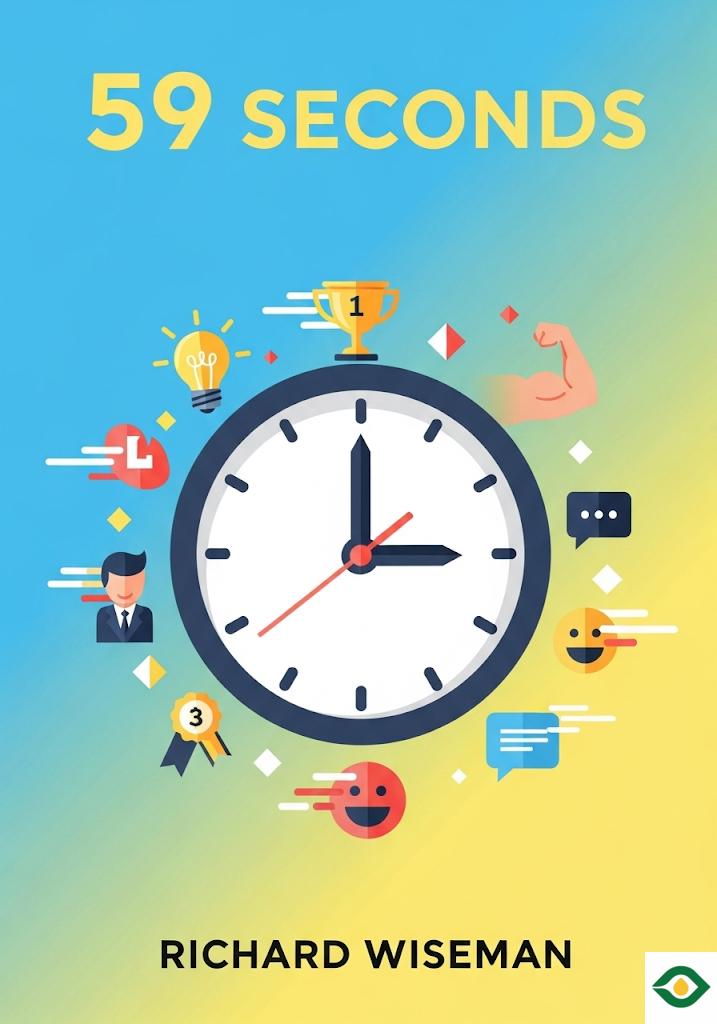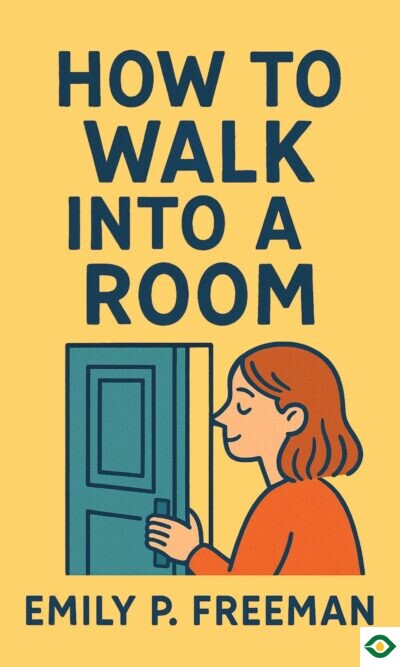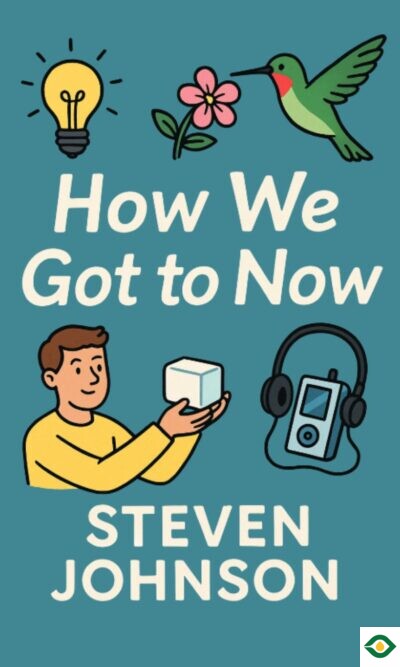Description
Life often feels complicated, and the self-help world usually tells us to spend years chasing goals with endless strategies. But research in psychology shows that small, quick actions can have powerful results. Sometimes you only need a few seconds to create a change that lasts. The book 59 Seconds explains how simple techniques can improve your job chances, boost your creativity, strengthen relationships, and even help you spot lies.
One of the first lessons is about being likable. Many people believe job interviews are mainly about qualifications and experience, but studies reveal something different. Likability often decides who gets the job. Simple behaviors—like smiling genuinely, showing interest in the company, or sharing an interesting story—can make you stand out. Another clever trick is to reveal a small weakness early on. It makes you seem more human and approachable. Even a minor mistake, if you are competent, can make people like you more. Instead of worrying about being flawless, let yourself be real.
This idea also extends to everyday life. Perfect people can feel distant, while those who show vulnerability are easier to connect with. A famous example is President John F. Kennedy, who admitted responsibility for the failed Bay of Pigs invasion. Instead of losing trust, his honesty made people like him more. Another helpful tip: avoid gossip. Research shows that when you speak badly of others, people start to associate those same negative qualities with you. If you want to be seen positively, speak positively about others.
Another common self-help idea is visualization. Many gurus say you should imagine yourself succeeding, like fitting into smaller jeans or getting a promotion. But scientific studies show that too much daydreaming can actually reduce motivation. People who only imagined success ended up preparing less and performing worse. The better approach is planning. Break big goals into smaller steps, and decide exactly when and how you will act. Sharing your goals with friends or family also helps because social pressure pushes you to follow through.
Creativity is another area where quick shifts make a difference. Group brainstorming has been praised for decades, but experiments prove that individuals working alone usually generate more and better ideas than teams. This is because in groups, responsibility is spread out and people hold back. Alone, you think more freely. But working solo doesn’t mean isolating your mind. The subconscious is a strong source of creativity. Salvador Dali, for example, would drift into a light sleep holding a spoon. As it fell and woke him, he captured fresh ideas from his subconscious state. Psychologists confirm that distraction often unlocks creativity—when your conscious mind is busy with something else, your unconscious continues to work on problems in the background.
Your surroundings also shape how creative you feel. The concept of “priming” shows that small environmental cues can change your mindset. For example, writing about punks, who are rebellious and free, made people more creative in tests compared to writing about engineers, who are seen as logical and rigid. Even adding plants or flowers to a workspace improves creativity and problem-solving abilities. A greener environment lowers stress and lifts mood, which opens the door to new ideas.
Happiness, too, can be improved in less than a minute. When bad things happen—whether a breakup, illness, or daily stress—we often try to distract ourselves. But a healthier technique is “benefit finding.” This means focusing on what you learned or gained from the experience. People who did this were better able to handle anger and sadness. Even in tragic situations, some individuals discover new strength, gratitude, or appreciation for life. After national disasters, for instance, many communities report higher levels of kindness, hope, and resilience.
Relationships also thrive with simple, intentional actions. Research shows that positive comments need to outnumber negative ones by about five to one for couples to remain happy. Small words of appreciation and kindness have huge power. Writing about your relationship for just twenty minutes over three days can also strengthen bonds. Couples who reflected on their feelings in writing were more likely to stay together than those who didn’t. Another smart trick is to balance criticism with the word “but.” For example, “He’s sometimes forgetful, but he always makes me laugh.” That small word softens faults and helps partners focus on strengths.
Another useful skill is spotting lies. Contrary to popular belief, liars do not always avoid eye contact or fidget nervously. Studies show they often appear just as calm as truth-tellers. Instead, liars tend to hesitate longer before answering, speak in a distant tone, and avoid words like “I” or “me.” They may also try to deflect questions by asking other questions. Because lying takes effort—the brain has to track details and stay consistent—liars often look like they are thinking too hard.
All of these findings share one theme: small, smart actions can create real changes. You don’t need years of effort to be happier, more successful, or more creative. Quick techniques, backed by science, can shift your life in the right direction.
To put this into practice, try writing your own eulogy. It might sound strange, but imagining how you want to be remembered helps you see your true goals. Another trick is to ask for communication by email when honesty matters. People are less likely to lie in writing because their words are recorded.
In the end, 59 Seconds shows that life can be improved in simple ways. You can become more likable by smiling, sharing honestly, and avoiding gossip. You can achieve goals by making real plans instead of daydreaming. You can spark creativity by working alone, tapping into your subconscious, and surrounding yourself with positive environments. You can find happiness by focusing on hidden benefits, and you can keep relationships strong with kind words and thoughtful writing. Finally, you can protect yourself by noticing how people speak when they lie.
Small actions, done in under a minute, can have lasting results. The key is to use proven psychological tricks instead of empty promises. The message is clear: you don’t need a lifetime of effort to make your life better—you just need a few seconds of smart change.





